Pure white rabbits in neatly designed cages, equipped with automatic feeding systems, ventilation fans, heat-insulating roofs, etc. are a familiar image at An Nhon Tay Clean Rabbit Cooperative in An Nhon Tay commune, Ho Chi Minh City.
This model was founded by Mr. Nguyen Manh Hung, aiming to develop clean and sustainable livestock farming, connecting farmers in An Nhon Tay in particular and provinces and cities in general.

Every month, An Nhon Tay Clean Rabbit Cooperative consumes about 3,000-4,000 rabbits. Photo: Nguyen Thuy.
Closed production chain, stable output
Unlike the traditional method of raising rabbits that depends on traders, An Nhon Tay Clean Rabbit Cooperative organizes production in a closed chain, from selecting breeds, providing technical guidance to product consumption. Members are provided with standard breeds, technical training, and instructions on waste treatment and disease prevention.
Each rabbit is raised in a separate cage to control disease and limit antibiotics. The food consists of 50% pellets and 50% vegetables and agricultural by-products, which is both cost-effective and maintains the quality of the meat, fragrant and firm.
"All products are purchased by the cooperative at a stable price of 65,000-70,000 VND/kg. Thanks to that, farmers do not worry about falling prices and can confidently develop their herds. Households raising 50-100 breeding rabbits can earn 5-10 million VND/month; large-scale households can earn over 10 million VND, equivalent to workers' income but more easily and sustainably," said Mr. Hung.
From the initial small group, in March 2022, the Cooperative was officially established with 40 members. Up to now, more than 60 households have participated, with a total herd of about 15,000 rabbits, becoming one of the largest rabbit breeding cooperatives in Ho Chi Minh City.
The cooperative's clean rabbit products are currently mainly consumed in restaurants, eateries, and food businesses. However, the cooperative does not stop there. To expand output, increase added value, and open the way to supermarkets, kitchens, and even export, Mr. Nguyen Manh Hung said that in the near future, the cooperative will cooperate with processing enterprises to produce canned rabbit meat products, pre-marinated roasted rabbit, and cut meat, etc.
This is an important step, because deep processing not only helps diversify products, prolong preservation time but also increases added value, opening up opportunities to bring clean rabbit products to supermarkets and collective kitchens.
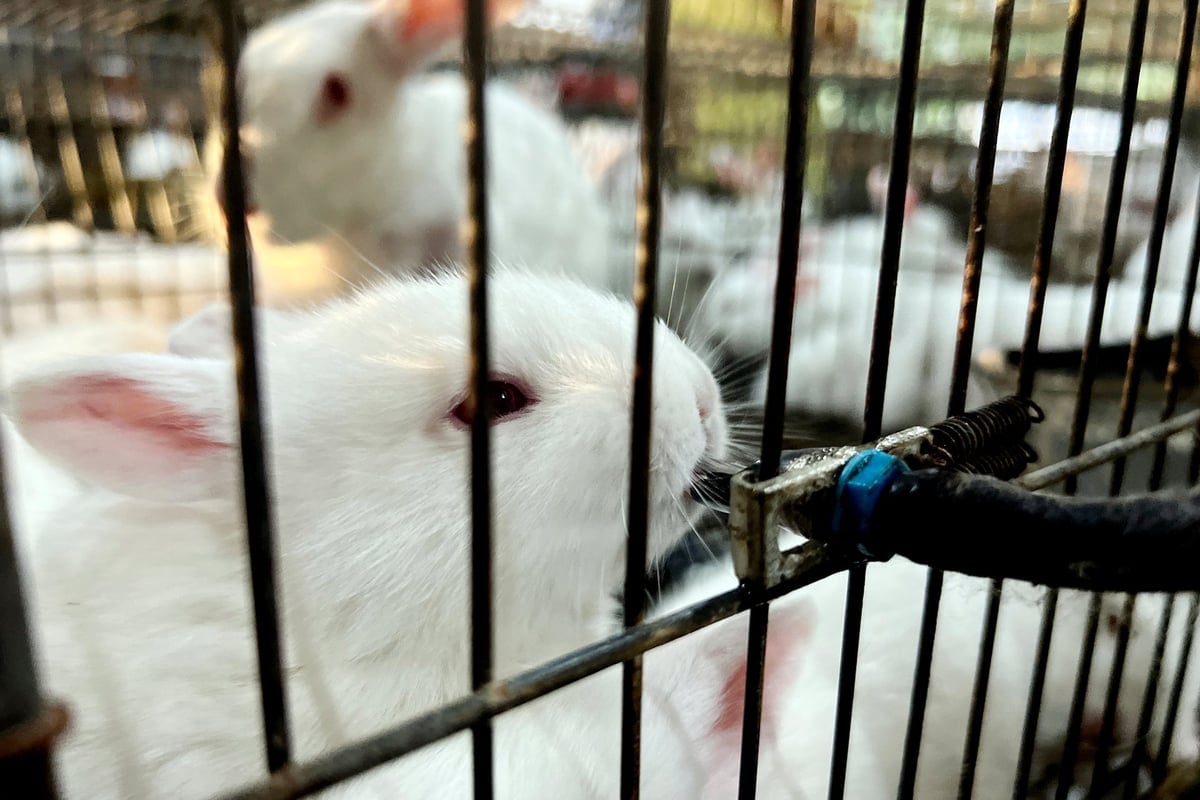
In the coming time, An Nhon Tay Clean Rabbit Cooperative will complete the clean rabbit value chain with synchronous and transparent quality standards, meeting diverse customer needs. Photo: Nguyen Thuy.
To support members, Mr. Nguyen Manh Hung said the cooperative established a Zalo group connecting farmers with veterinary engineers. When rabbits show signs of illness, farmers only need to take a photo, send a description, and immediately receive diagnostic advice and treatment instructions. This method is both quick and reduces the risk of damage.
The cooperative also focuses on disease prevention, requires vaccination against sepsis for breeding rabbits, and has a special care process for weaning baby rabbits. Thanks to that, the loss rate has decreased significantly, and farming efficiency has increased.
Mr. Nguyen Manh Hung added that during its operation, the cooperative received support from the local government, the An Nhon Tay Commune Farmers' Association, and the Ho Chi Minh City Farmers' Association. Many members have access to preferential loans from the employment support fund and the farmer support fund, thereby having the conditions to expand their herds.
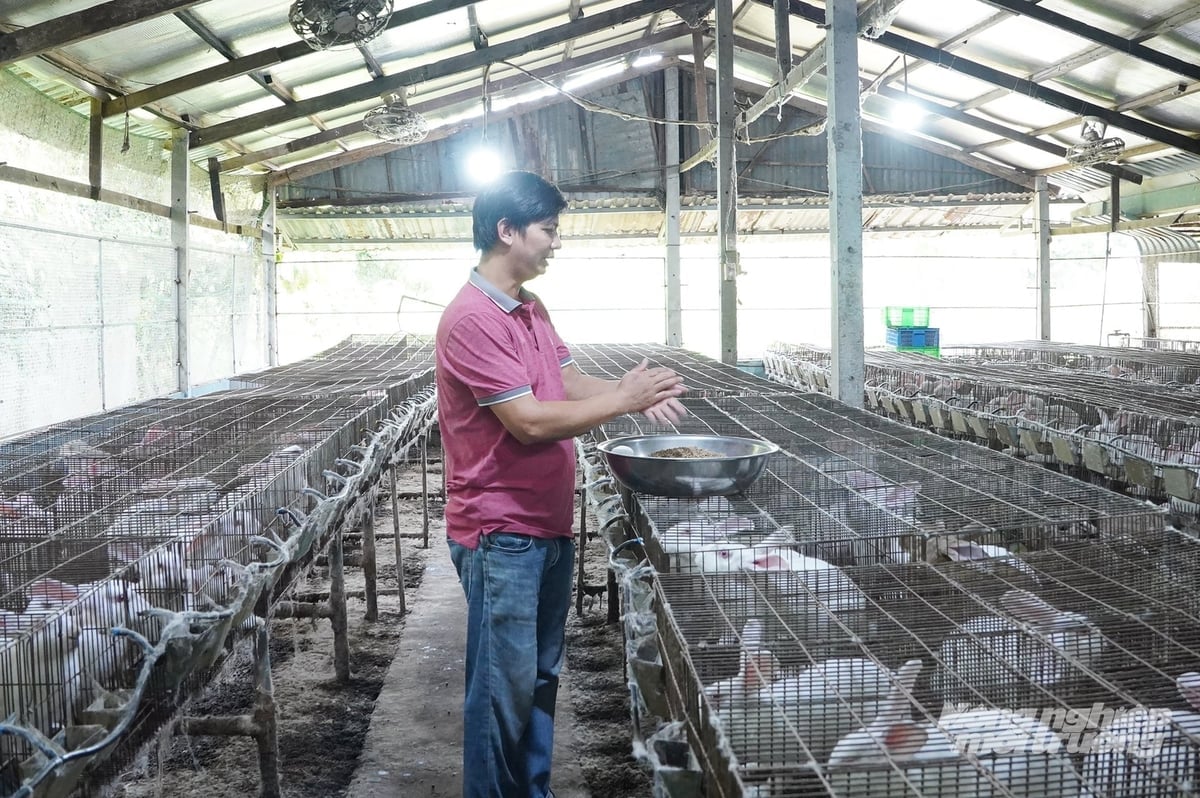
An Nhon Tay Clean Rabbit Cooperative purchases output for its members at a price of 65,000-70,000 VND/kg. Photo: Nguyen Thuy.
Linking the value chain from farm to table
Not only is it a place to consume products, the Cooperative also helps people share experiences, learn techniques and develop together. It is this community connection that creates collective strength, helping the model stand firm in the face of market fluctuations. In addition, the Cooperative also regularly welcomes students from schools in Ho Chi Minh City, as well as farmers from other provinces to visit and experience.
In fact, rabbit farming under the cooperative model has brought about clear results. With low costs, fast turnover, and stable income, the model is suitable for farmers in suburban areas. This is a way to help people escape from small-scale, unstable farming, and at the same time contribute to building a clean, safe agriculture.
An Nhon Tay Clean Rabbit Cooperative not only brings income to many farming households, but also opens up a sustainable direction, closed production, safety, branded and community-connected.
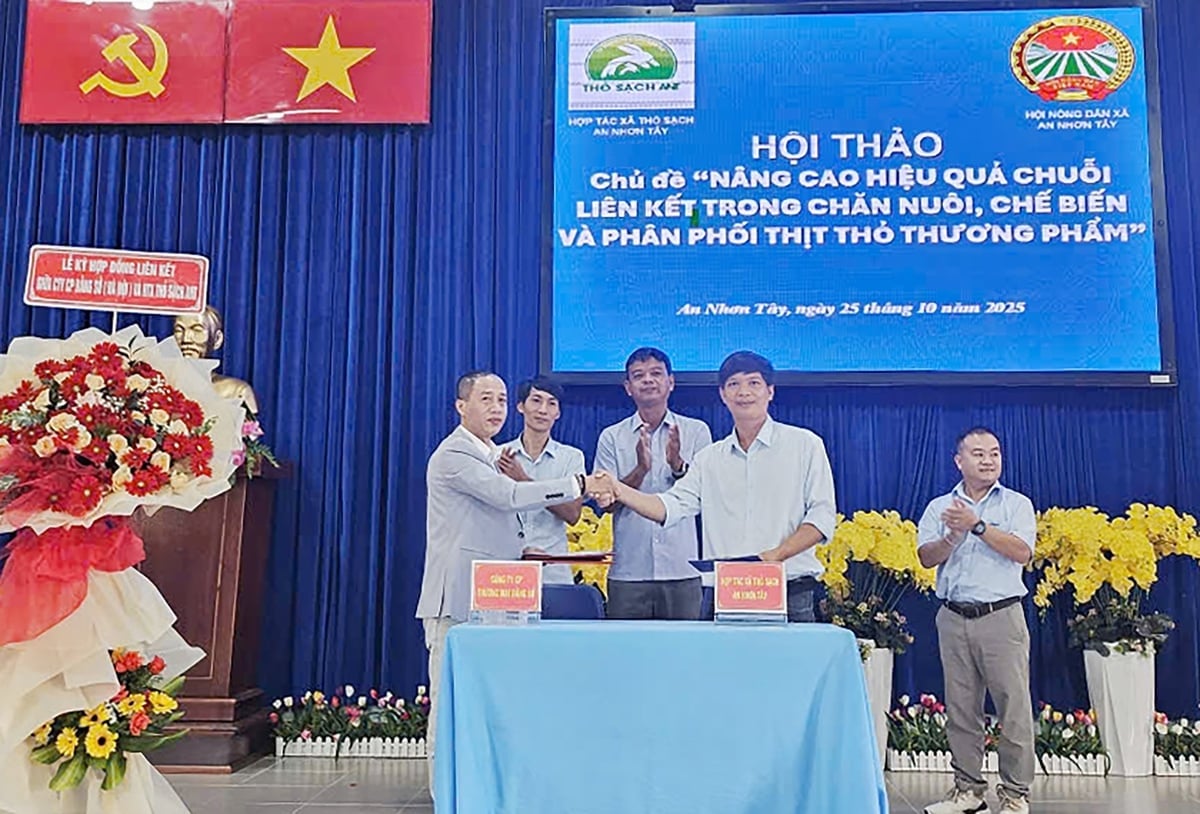
Under the witness of the An Nhon Tay Commune Farmers' Association, An Nhon Tay Clean Rabbit Cooperative signed a cooperation agreement with Bang So Joint Stock Company ( Hanoi ) in the project "Tro Quan - from farm to table". Photo: MH
In particular, on October 25, An Nhon Tay Clean Rabbit Cooperative signed a cooperation agreement with Bang So Joint Stock Company (Hanoi) in the project "Rabbit Shop - from farm to table". Thereby, it will improve the efficiency of the chain of links in raising, processing and distributing commercial rabbit meat.
Applying electronic traceability, digital livestock diary, AI and e-commerce to control quality, promote products and expand markets. Digitalization helps to clarify origins, increase consumer confidence, and at the same time provide legal protection for producers, ensuring compliance with food safety regulations and electronic invoices.
Mr. Nguyen Manh Hung said that An Nhon Tay Clean Rabbit Cooperative aims to develop the "clean rabbit" value chain in the period of 2026-2030 according to the farmer - cooperative - enterprise - market model, promote deep processing, expand the southern market, link with agricultural tourism and apply comprehensive digital transformation.
Source: https://nongnghiepmoitruong.vn/chan-nuoi-tho-khep-kin-o-an-nhon-tay-d781914.html







![[Photo] Opening of the 14th Conference of the 13th Party Central Committee](https://vphoto.vietnam.vn/thumb/1200x675/vietnam/resource/IMAGE/2025/11/05/1762310995216_a5-bnd-5742-5255-jpg.webp)
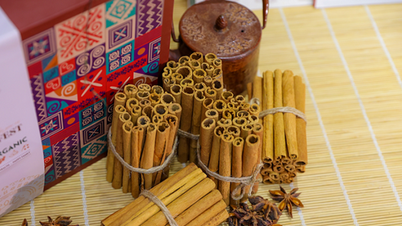

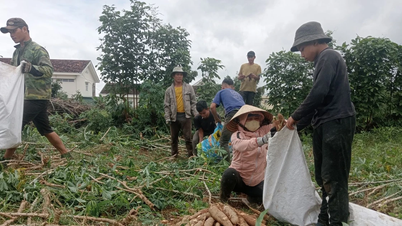

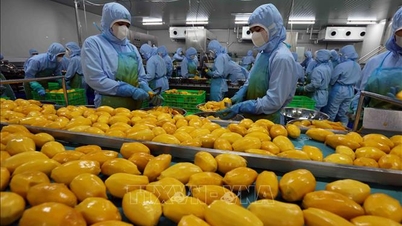

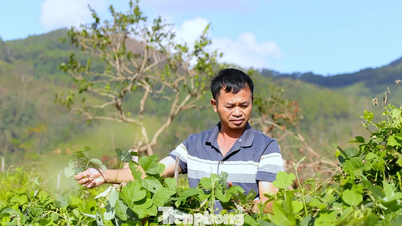



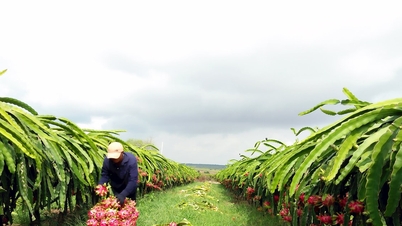

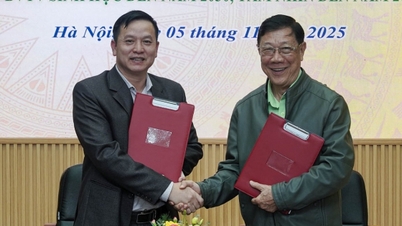


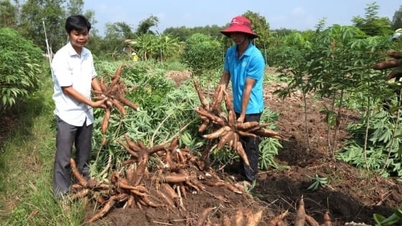






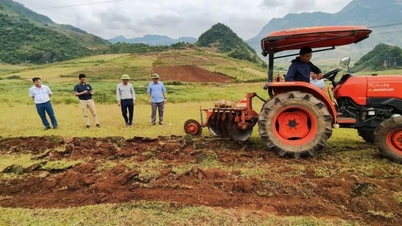
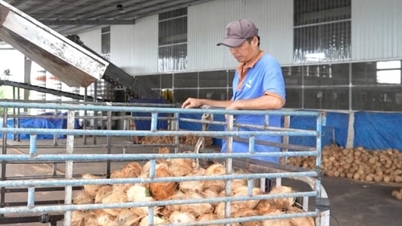

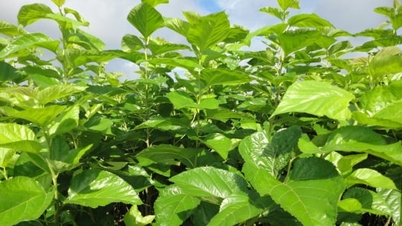



![[Photo] Panorama of the Patriotic Emulation Congress of Nhan Dan Newspaper for the period 2025-2030](https://vphoto.vietnam.vn/thumb/1200x675/vietnam/resource/IMAGE/2025/11/04/1762252775462_ndo_br_dhthiduayeuncbaond-6125-jpg.webp)
















































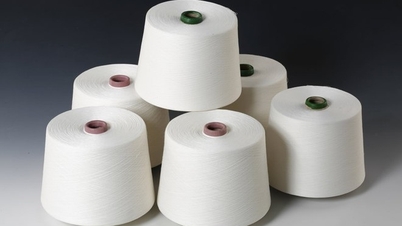


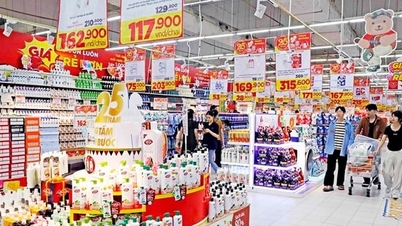






















Comment (0)